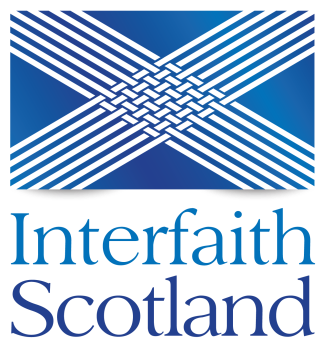Last Tuesday Interfaith Scotland run a dialogue event together with Faith in Older People, Marie Curie, Stonewall and Edinburgh Interfaith Chaplaincy about “Identity and Belonging”. There was a very good atmosphere during the event and people of different age groups, different faith and believe, different sex and gender and different nationality shared their thoughts and had intensive discussions about Identity.
In the following I will share some of my thoughts about this theme.

I would say that a lot of the conflicts we have in our modern world are conflicts between different group identities and individual identities. From outside point of view the conflict in Catalonia in Spain seems to be amongst other things (economic reasons…) between people with a Catalan identity and people with a Spanish identity and a lot of people in between with maybe both identities or other identities such as a European identity. Also the conflicts in the USA between supporters and opponents of Donald Trump seems for me (mainly) to be about the question “what does it mean to be American?” or “What is the “true” American identity?”. These kind of conflicts seem to be typical for our time. Other examples (always with different focus) could be Germany after the refugee crisis, post-Brexit Britain, the question of Scottish independence and discussions about whether to widen or to diminish the European Union.
All of my examples have something in common: They are about national identity/state identities, but this is only because these kind of conflicts seem to be very strong at the moment because of their high media presence. These conflicts are also an important question in the area of Interfaith Dialogue.
On Tuesday evening I held speech at the German Speaking Church in Glasgow about Interfaith dialogue and the work of Interfaith Scotland. One of the question asked during the following discussion was very typical “Isn’t interfaith dialogue about giving up things and producing a kind of “wishi-washi” religion?”. This question is not a bad question, because it refers to the identity of religions involved in interfaith dialogue. People asking this kind of question would probably say, that there is such as a core identity of their religion, which can’t be giving up and I would assume that a very large majority of believers in all religion would share this opinion. So for a Muslim majority there are things which can’t be giving up without becoming a Non-Muslim in the same way as there are things which can’t be giving up for a Christian majority, a Jewish majority, a Hindu majority, a Buddhist majority and so on. The interesting point here is, that it would be very difficult for all Muslims, Christians, Jews, Hindus, Buddhists, … in their own faith to agree about the things which are building this Muslim, Christian, Jewish, Hindu, Buddhist, … identity.
I give an example from my own tradition. If you would randomly ask Christians from all over the world about the core of what it means being a Christian they might answer: “Being a member of the church”, “Being baptized”, “Refer to Jesus as the Lord”, “The trinitarian faith of God as Father, Son and Holy Spirit”, “The command to love your neighbour”, “The belief in the crucifixion and resurrection of Jesus”, “to belief Jesus is the son of god”, “to go to church”, “to pray the Lord’s Prayer”, “to help others”, “to recognize the pope”, “to read the bible”, “to believe in 7 sacraments”, “to believe in 2 sacraments”, “to live in a Christian country”, “to celebrate Christian festivals”, …
It would be really hard to find one of these answers that all Christians in the world can agree on and in my opinion it is impossible to make them agree on what they mean when they say “referring to Jesus as the son of god” is the core of the Christian identity.
And I would assume it is the same in the other faith traditions.
From my point of view that shows, that it is only possible to build a so called religious identity as long as the core of this identity stays vague enough, so that a certain group of people can agree on it. If the core of a certain faith tradition is this vague the risk of loosing the identity is very little, because there is no single core for the identity. For every individual believer slightly different parts of the faith are important for their faith identity and all large faith identities (“the Christian/Muslim/Jewish/Buddhist/Hindu/… identity”) are in a way theoretical constructs.
For a single individual his or her personal faith identity might change a couple of time during his or her lifetime, but that should normally be not a big problem, because it is a personal decision to agree or disagree to a certain point of view. Identity problems only start, if other people prohibit others to change their point of view, because they consider it as Non-Christian/Muslim/Jewish/Hindu/Buddhist/….
That means identity conflicts become only urgent or dangerous if people feel they have the right to judge about the identity of others.
If you agree or disagree with my thoughts feel free to let me know your opinion – that’s what dialogue is about!

